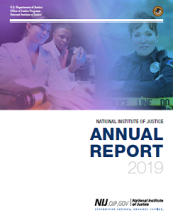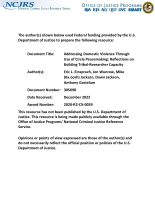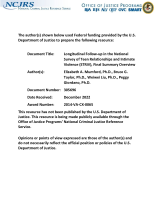Research programs
Fiscal Year 1990 Program Plan: National Institute of Justice
National Institute of Justice: NIJ Program Plan 1993
NIJ (National Institute of Justice) Program Plan, 1994-95
Remarks of James K Stewart Concerning The National Institute of Justice
A Leg Up: NIJ's Graduate Research Fellowship Program
A Leg Up: NIJ's Graduate Research Fellowship Program
NIJ Director Dr. Nancy La Vigne joins the show to interview Dr. Marie Garcia, Director of NIJ’s Criminal Justice Systems Division and a former NIJ graduate research fellow. They discuss the application process, Marie’s experience as a fellow while at Temple University, and advice for future applicants.
Reading and Resources from NIJ:
An undergraduate research in computer forensics
NIJ FY23 W.E.B. Du Bois Program of Research on Reducing Racial and Ethnic Disparities in the Justice System
Campus Sexual Assault Responses (CSAR): Informing Trauma-Informed Policies, Protocols, and Training
Sexual violence is a significant criminal justice problem with long-term effects for its victims. In particular, sexual assault on or related to college campuses across the United States presents a growing public health and economic burden, starting with significant impacts on academic outcomes.
See the YouTube Terms of Service and Google Privacy Policy
Providing real-time information integration for better public safety performance
Gender-Based Violence and the Latinx Community
See the YouTube Terms of Service and Google Privacy Policy







